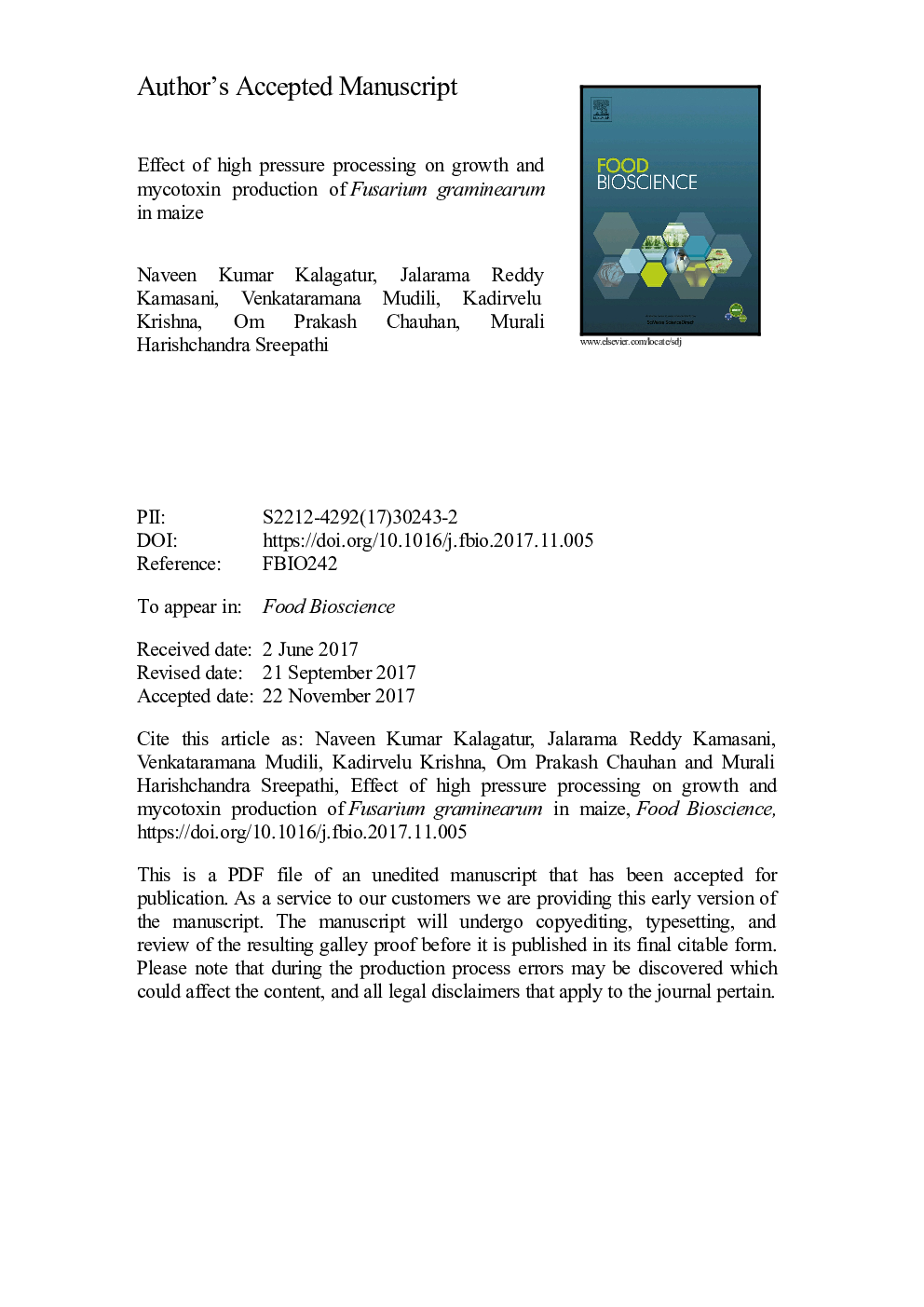| Article ID | Journal | Published Year | Pages | File Type |
|---|---|---|---|---|
| 6488950 | Food Bioscience | 2018 | 30 Pages |
Abstract
In recent times, high pressure processing (HPP) has emerged as one of the promising decontamination techniques in agriculture and food industry. It has minimal impact on taste, nutrients, flavor, and freshness of food. Therefore, HPP is highly acceptable technique to inhibit the growth and toxins of foodborne pathogens in food matrices. In the present study, HPP technology with thermal variation was applied to control the growth, and level of deoxynivalenol (DON) and zearalenone (ZEA) in maize grains adopting response surface methodology (RSM). The spore inactivation activity by means of HPP was studied by spore germination inhibition in peptone water and complete inactivation was observed at 380 MPa and 60 °C for 30 min. Propidium iodide staining revealed that HPP inactivates the spores by damaging the membrane integrity. RSM experiment was executed using central composite design (CCD) with the association of independent factors of pressure (MPa), temperature (°C), and pressure-holding time (min) and results were assessed by second order polynomial equation. Conversely, the regression analysis of all the responses (reduction in CFU%, DON%, and ZEA%) was conducted by fitting the suitable model. The responses were significant (p < 0.05) and fitted well with the quadratic model. The CFU, DON, and ZEA were not observed in maize at 550 MPa of pressure, 45 °C of temperature, and 20 min of pressure holding time. The study concluded that HPP could be useful in agriculture and food industry to manage the growth, and level of DON and ZEA by F. graminearum in agricultural commodities.
Keywords
Related Topics
Physical Sciences and Engineering
Chemical Engineering
Bioengineering
Authors
Naveen Kumar Kalagatur, Jalarama Reddy Kamasani, Venkataramana Mudili, Kadirvelu Krishna, Om Prakash Chauhan, Murali Harishchandra Sreepathi,
